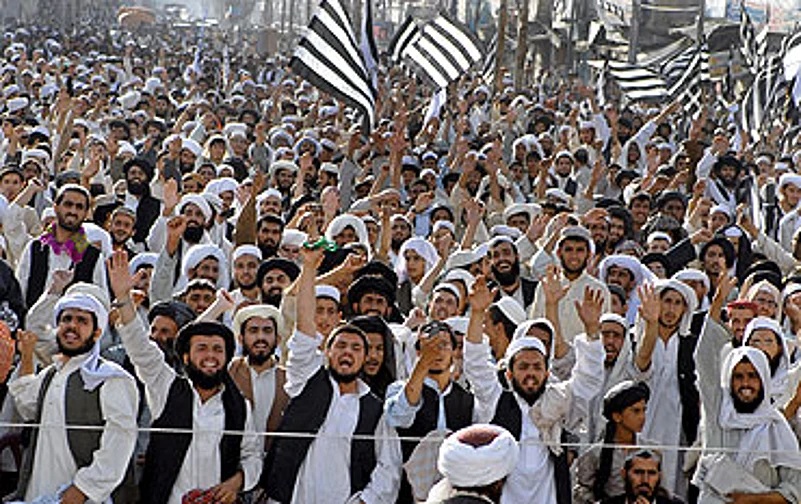***

An anti-America rally in Quetta, May 22
That their attempt was doomed to fail was obvious from Sharif's remarks to the media, "I told them (Americans) that we can't kill our own people for the sake of others. The basic issue is that just as the US wants to be safe from terrorism, we don't want blood to flow in our streets." And though Zardari didn't speak to the media, Hussain Haqqani, ambassador designated to the US, who had attended the meeting with him, said the US officials were given notice that the old ways were over. "If I can use an American expression, there is a new sheriff in town," he said, adding that the US officials have realised that they have perhaps talked with one man (Musharraf) for too long.
Last weekend, though, nato's spokesman in Afghanistan, Mark Laity, warned Islamabad that peace deals should not lead to a "transfer" of violence from Pakistan to Afghanistan. Frustrated, the US has increased drone surveillance flights and aerial attacks in Pakistan (something that could scupper the deals). Diplomatic sources in Islamabad also say any solution to militancy must include dismantling of the "jehadi economy" that has sustained militants on both sides of the border. Pakistani intelligence circles concede that the peace deals, if successful, could mark an end to Islamabad's strategic influence in Afghanistan. Pakistan can scarcely meddle in the affairs across the border when it hopes to wean away militants from violence.
So, will terrorist violence return to haunt Kashmir? Sources say when the Soviet troops pulled out of Afghanistan in 1988, the mujahids who had fought them moved to Kashmir to wage yet another jehad. "After 9/11," said a source, "as militants shifted back to the Afghan border, Pakistani authorities gradually pulled the plug on Kashmiri militant organisations, bringing government support to their activities to a complete halt by January '06." It's unlikely the new government will reverse this policy now, amidst signing peace deals, as it's aware of the blowback inherent in fomenting terrorism across the border.
They bolster their argument by pointing out that the peace deals were signed days after a public gathering of the Kashmiri militant organisation, Hizbul Mujahideen, where its chief, Syed Salahuddin, hinted at reviewing the policy of armed struggle on the condition that India accepts meaningful tripartite talks for evolving a solution to the Kashmir issue. They say his pronouncement couldn't have come about without an official nod, suggesting that the Pakistani establishment hopes to moderate the Kashmir militants in the hope of India offering concessions.

















